Yann Gueho, the story of France and Chelsea’s lost star who was rated better than Mbappe
What I can say is that in his last moments on the pitch playing football, he hadnt lost anything. It was a pleasure to see him touch the ball. At the moment he accelerates, you can see Messi, you can see Neymar, you can see Mbappe.
Ooof.
Alexandre Monnier, a former reserve coach at Paris FC talking about Yann Gueho
At her home in Maisons-Alfort, on a quiet road in the south-eastern suburbs of Paris, Anne-Marie Gueho sighs as she looks up from the dining table where we have been talking for the past two hours.
I always told him, You have got a gift. You have to do something with it, she says.
There is a mixture of sadness and frustration in her voice. Regret, too, at a terrible waste of talent.
For me, its a catastrophe, Anne-Marie says, shaking her head.
She is talking about Yann, the third of her six children and a boy now a man who signed for Chelsea as a teenager and had the potential to become one of the best footballers in the world.
When we talk with other coaches about this or that player, we can say, He can become a pro, explains Marc Leclerc, who coached Yann at Paris FC, the Ligue 2 club where he played before joining Chelsea. With Yann, we said to ourselves, At what age will he win the Ballon dOr?
Every person that played with Yann thinks he could have won the Ballon dOr if he was serious, adds Khallil Lambin, who grew up in the same neighbourhood as Yann and was at Nantes with him. This boy its the biggest loss in football Ive ever seen.
Yann Guehos story is extraordinary and has taken months to piece together. Trawl the internet and he almost ceases to exist, like some sort of footballing ghost. Yet mention his name to those who played with him, or coached him, and the responses are remarkable.
I didnt know him before he joined Nantes, Valentin Rongier, the Marseille captain, tells The Athletic. Id only heard of him through players at Nantes that came from Paris they were saying that he is a phenomenon.
Honestly, at that age (16), he is the player that shocked me the most in terms of talent. Ability/skills-wise, he was 10 classes above everyone else. He could take on absolutely anyone one-versus-one I had never seen this in my life. The ball was stuck to his feet.
A pure talent, says Jeremie Boga, the Atalanta winger who was at Chelsea at the same time as Yann. Hes not really known to the world. But if you ask anyone at Chelsea, they will probably tell you that Yanns the best player who has ever played in Chelseas academy. He was incredible.
Damien Dussaut, who was with Yann at Clairefontaine, the national training centre for the most talented young players in the Ile-de-France region, puffs out his cheeks. I can only say that you had to see to understand, says Dussaut, who went on to play for Standard Liege in Belgium.
Because its hard when you say to people that Yann Gueho is a better talent than (Kylian) Mbappe, than (Ousmane) Dembele everyone says, Youre crazy, he doesnt play football. But I say, Guys, you had to see what talent he had he could win the game alone. He was like a magician.
A winger blessed with pace, power and an incredible array of skills, Yann played the game with breathtaking audacity. His party trick was to go past an opponent, wait for them and then beat them again. Rainbow flicks were a regular part of his routine and no game was complete without a nutmeg.
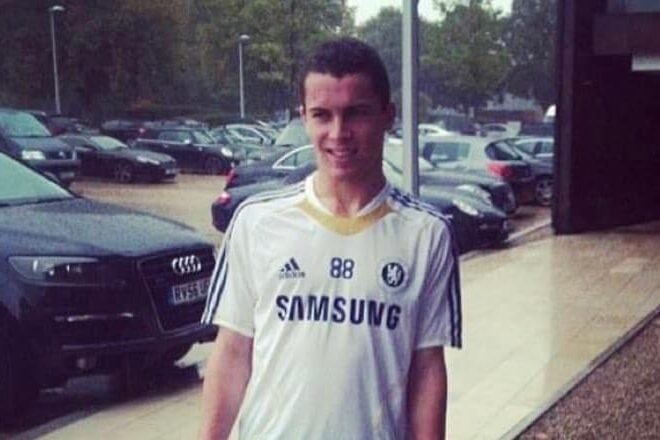
Real arrogance bordering on genius, Adi Viveash, the former Chelsea youth coach, says. Yann would nutmeg someone and then want to put it back through the other way. But it wasnt just the nutmeg. He was able to flick it up in the air, knock it over someones head and then volley it back over their head as they went towards the ball.
The ability to really take the mickey out of opponents, at 15, 16 years of age, was quite scary. It was like he froze players. He went around them, over them and through them. It was like watching a skateboarder trying different tricks. I havent seen much like it.
His Chelsea team-mates were mesmerised and even now, more than a decade after they last saw or heard from Yann, still talk about him with a sense of wide-eyed excitement.
Im grateful that I got to see Yann play every week. I can genuinely say that, adds Alex Davey, who played in the same under-15 and under-16 teams as Yann at Chelsea. And I know it sounds weird saying that about a young kid. But youll never come across anyone like that again, anyone that good. He would, 100 per cent, be the best player in the world now if he was still playing.
Davey rocks back on his chair and laughs at the absurdity of what Yann could do with a football. I remember we had these MacBooks at Chelsea, and you could go and view your clips in the academy building. There were 12 computers, but we would all be around one, just watching Yanns clips. He would be somewhere else, not paying any attention. And we were like, Wow, look at that!

Yann, in the white hoodie, shows his father and siblings some of his academy clips at Cobham, one of the very few times he was interested in the video the club had prepared of him
It doesnt take long to realise there are more than enough tales about Yann Guehos football ability to comfortably fill a book. Unfortunately, another could be written about his problems off the field and that, ultimately, is why Yann, who turned 28 last month, is watching Mbappe and Dembele on television rather than appearing in a France shirt alongside them.
It is a complex and deeply moving story that Anne-Marie tells over the course of several interviews, after politely making it clear there is no prospect of talking to Yann, who suffers with depression and struggles, in her words, to accept what happened to him.
There is no easy way to explain what happened to Yann other than to say that he has spent the best part of three years in prison across three separate sentences since leaving Chelsea in 2011 and also been admitted to (and escaped from) a psychiatric hospital.
For all his talent, Yann has never played a professional football match. In fact, he hasnt kicked a ball for seven years and the last hat-trick he scored was in the town of Fleury-Merogis, which is home to Europes largest prison.
Six months after leaving Chelsea, on his 17th birthday, Yann walked into a shop in Maisons-Alfort, less than a half a mile from his home, wearing a balaclava and armed with a blade.
One of his former coaches told The Athletic that Yann had followed his friend and was in the wrong place at the wrong time. Others say Yann had been mixing with criminals for years and it was a matter of time before he got into serious trouble.
What is not in dispute is that Yann was involved in the robbery that took place at a perfume store on November 29, 2011. He was caught soon afterwards and imprisoned days later. His accomplice was never found and Yann was determined that it stayed that way. He took more months in prison because he didnt give the name, Anne-Marie says, ruefully.
In the football world, the news was met with sadness but not surprise. Despite being brought up in a stable family home, where his five siblings were never in any sort of bother, Yann had a magnetic attraction to trouble from a young age. He was regularly in fights at school and, by Anne-Maries own admission, showed little respect for authority.
Even at football his behaviour could be wild and unpredictable. In one game for Paris FC, Yann walked off the pitch after nutmegging the same player three times. At his selection trial for Clairefontaine, he refused to play unless the coach put him in his favourite position. Then there was the time that he showed up by the side of the pitch at Chelsea wearing a pair of pink crocs.
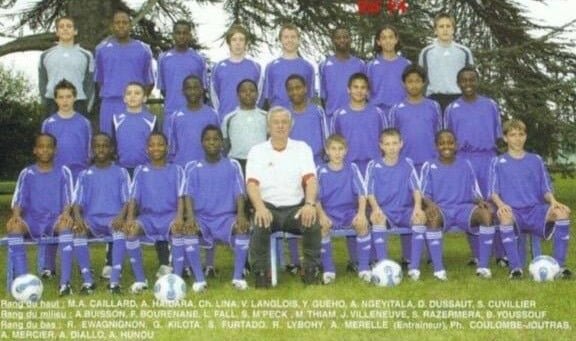
Yann, fourth from the right on the back row, with players at the same intake at Clairefontaine
Although some of the incidents were funny, others were troubling, in particular when he lost his temper and Yann lost his temper a lot. The fuse was as short as Ive ever seen in a footballer, Viveash adds.
I remember the opposition coach, and Im not sure if it was Arsenal or West Ham, saying to me, Wow, that boy is an absolute genius, isnt he? He paused and said, But hes just on the edge. And I said, Yeah. He said, Well, if you can tame that, what a player youve got.
But nobody could tame Yann. At Clairefontaine, he was expelled before he completed his first year. Lille had enough after only four months. As for Chelsea, the brawl that Yann was involved in towards the end of the 2010-11 season was one misdemeanour too many at the end of a long list.
Nantes signed Yann that summer, but their patience ran out three months later after staff became exasperated with his behaviour. Matthieu Bideau, the academy chief scout at Nantes, describes the decision to sack Yann as heart-breaking because, deep down, he always believed that Yann was a good person as well as an outstanding footballer.
When you saw Yann play, you saw a player like Ronaldinho, Bideau says. He could do everything with the ball when he wanted. But only when he wanted.
When we announced the decision to Yann (that he was being sacked), we contacted the parents and they came. Never did the parents say, But why? They only said, OK, thanks for signing Yann, thanks for taking time with him. We are sorry. We saw in their eyes, like every parent in this situation, they only think about what he will become, and what Yanns future is going to be.
Prison, unfortunately, was the answer.
Yann never lost his football ability, but a last shot at redemption came and went at Paris FC at the end of 2014. Aged 20, Yann looked the part in one respect people were comparing him to Neymar when they saw what he could do with a ball but not in another.
He spent three months playing with Asics running trainers, Loup-Diwan, who is one of Yanns three younger brothers and a professional footballer for Paris FC, says.
Asked why Yann chose to do that, Loup-Diwan looks blank. I dont know, he replies.
Anne-Marie has a different answer an answer that explains nothing and everything at the same time. Because its Yann, she says.
It was a really hard decision to go to Chelsea because it had not been accepted by a lot of people, including my family, Anne-Marie says. But we had been given such a warm welcome by the club, they were so excited by Yann. The message when we arrived was that Yann was like Jesus.
At the time, Chelsea were six years into Roman Abramovichs reign as owner. It was the summer of 2009, Carlo Ancelotti had just taken over as manager and the club were about to enjoy the most successful season in their history.
At academy level, Chelsea were desperate to make a big impression too. They had been spending significantly on young players for several years a recruitment strategy that was initially overseen by Frank Arnesen, following his appointment as director of youth and development in 2005.
In that respect, Yann was joining a club that was going places and that came with some perks. Chelsea provided a house in Raynes Park, in west London, where Anne-Marie and Yann lived with his three younger siblings, Loup-Diwan, Jonah-Louis and Kaylan, and agreed to pay school fees for all four children.
Mickael and Tiphany, the two eldest children, stayed in France with Anne-Maries husband, Jean-Pierre, who travelled to London every weekend on the Eurostar. As for Yann, a long-term arrangement was drawn up by Chelsea, albeit not in the usual way. It was a six-year plan on blank paper, Anne-Marie says.
Although signing for Chelsea was an incredible opportunity for Yann, not everyone saw it that way. People made comments saying we went there for the money. But we didnt, explains Anne-Marie, who is still upset by that accusation now. We are a sporty family. For us, the idea of playing with the best players is fantastic, that was the aim. And if we had refused Chelsea, it would have been impossible to control Yann.
Controlling Yann was difficult full stop and, looking back, there were some early red flags. Yann was also an exceptionally talented tennis player but totally unable to control his emotions. Rackets got broken over and again and Anne-Marie has never forgotten how he reacted to his first defeat.
He vomited after the match and didnt move, she says. The first thing he said afterwards was, When am I going to play against him again? He was five years old at the time.
Although the Guehos love sport Anne-Marie and Jean-Pierre met playing handball, and Tiphany was a talented athlete football was never really their thing. In fact, they tried to discourage Yann from playing the game by hiding his trainers. That didnt matter, he played in his socks, Anne-Marie says.
Yann was a natural with a football. So natural that not one of the coaches interviewed by The Athletic for this article took any credit for his ability.
Nobody taught Yann anything. He was born with it, says Reda Bekhti, who worked with Yann at Paris FC and has coached internationals at some of the biggest clubs in Europe. Until now, I have never seen a better player, individually, technically and athletically.
Jean-Francois Godin, Yanns first coach, at Charenton, agrees. A good fairy was bent over his cradle, he says. With his talent, this boy could have been the equal of the greatest if he was well-surrounded and Im talking about football, and not his family, of course. My feeling is that he was a genius but a misunderstood genius.
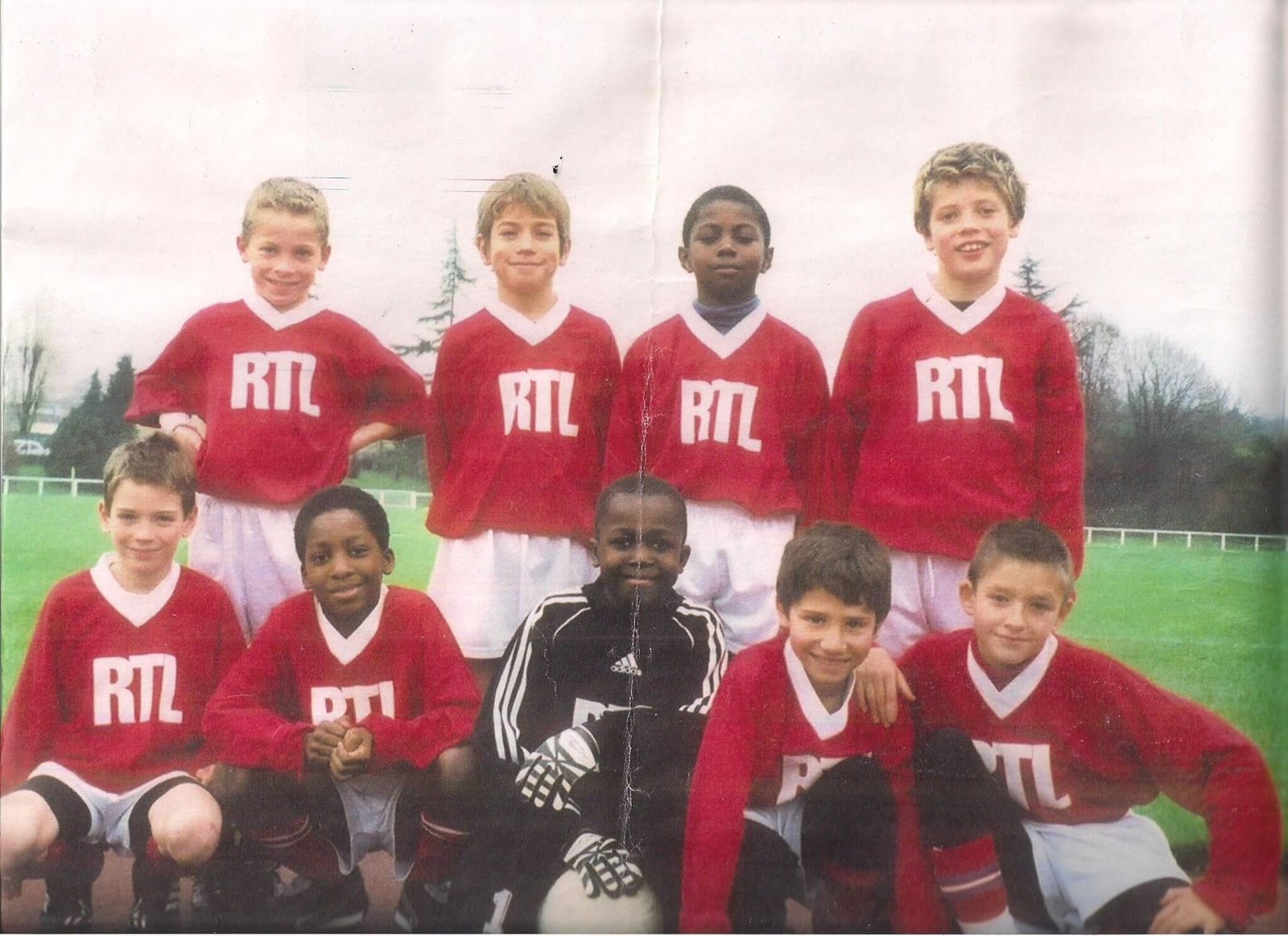
Yann, bottom left, at his first club Charenton
Yann was bright but complicated. In between doing keepie-uppies for so long at Charentons training sessions that Godin had to tell him to stop, and analysing games on the way home from matches with his coach in a way that an adult normally would, Yann was a problem child at school. He was so disruptive in the classroom that he was seeing a psychologist once a week from the age of nine.
Anne-Marie hoped those sessions might shed some light on Yanns behaviour. Instead, she was told after a year that Yann had what was described to her as middle-child syndrome a condition that suggested he was struggling to deal with being neither the eldest nor the youngest sibling. That diagnosis still annoys Anne-Marie now. Its not a reason, she says.
All the while, Anne-Marie and Jean-Pierre tried to come up with ways to bring Yann back into line. Because he had so many issues at school, the only way for us to punish him was for him not to go to football, she says. But then the coaches were calling us, saying, Can you please send your child to football? That didnt help him, it burnt his mind from the start.
Football provided an escape for Yann and made everything else seem unimportant. He was not the sort of boy who grew up idolising players Ronaldinho was the only footballer he ever talked about but on the pitch he seemed to be in his element and liberated in every sense.
He was a free player, says El Hadad Himidi, Yanns coach at US Creteil-Lusitanos, the club he joined after Charenton and where the France international Adrien Rabiot started his career. When there was a difficult match, I gave everyone tactics and instructions. But I never did that for Yann. I just said, Can you come back sometimes? He would say, OK, OK. But he never did. You cannot control Yann, I understood that very quickly, so I preferred to let him play.

Himidi, who coached Yann and later managed the Comoros national team
Watching Yann play, Himidi says, was a pleasure and a pleasure that he has never forgotten. Everybody in France speaks about Kylian Mbappe. I live in France, I saw Kylian Mbappe every time. Yann is better than Kylian Mbappe, Himidi says. Yann played with a feeling. Its very different. He was a free spirit. You cant try to copy Yann. Nobody could. He was like Zinedine Zidane. He was a dancer on the pitch.
Himidi gives an interesting response when asked whether he ever experienced any behavioural problems with Yann. Never, he replies. But I know that if you want to, you can have a problem with Yann. Even sometimes if he wanted to, I didnt go into a confrontation with him. Because I knew that if I went there, I dont know how we can live with this situation. So I preferred to leave it.
Yann could be manipulative with coaches and enjoyed pushing boundaries, safe in the knowledge that he was always the best player in the team. Aged 12, he point-blank refused to play as a full-back during his trial to get into Clairefontaine. When the coach told Yann that he wouldnt take part in the game if that was the case, he shrugged his shoulders. Eventually, the coach changed his mind, Yann played further forward and was outstanding.
On another occasion, he refused to take his tracksuit bottoms off because the weather was so cold. The coach said, OK, if you keep them on, you dont play in this game, Damien Dussaut, who was with Yann at Clairefontaine and US Creteil-Lusitanos, says. Yann said, OK, I dont play, no problem. After five minutes, the coach said, OK, you can play with them on because he knew you could win the game with Yann alone on the pitch.
Dussaut laughs. I remember one game with Creteil we played against PSG (Paris Saint-Germain). The first game against them, Yann was not there and we lost 6-1. In the second game, he was available. He said, No problem, guys, well win. He took the ball, dribbled around four, five, six players and scored. We won the game 2-0. Yann scored both. Ive never seen anything like it in my life.
The teachers at Catherine de Vivonne school in Rambouillet, on the outskirts of Paris, were nothing like as impressed. Living away from his parents during the week, Yann was often in fights and not interested in learning. His behaviour was so bad that he was only allowed to go on school trips if Anne-Marie accompanied him.
Clairefontaine were asking for me to come to see them every single week, Anne-Marie recalls. The coaches said, We really like Yann. But please make sure he is not making more trouble at the school.
Inevitably, Yann was expelled. I dont know what happened, Amadou Diallo, who was at Clairefontaine with Yann and now plays in Norway, says. We had some very good players in our group. But Yann was the best of our generation, for sure. There are a lot of stories (about why he left). You dont know what is the truth. But he was not nasty. It was not disrespect. Maybe it was nonchalance.
Lille came calling soon afterwards and that proved to be a short-lived experience too. Aged 13, Yann struggled to cope off the field he dragged his mattress into a friends room because he didnt want to sleep alone and he was a disruptive influence around the club, prompting Anne-Marie to consult another psychologist.
According to Anne-Marie, that psychologist told her she had a diagnosis for Yann but, because of a reluctance to put children in boxes, refused to disclose any details other than to prescribe medication medication that Yann absolutely did not agree to take.
At the same time, Anne-Marie spoke to the family doctor, who told her that certain behaviours could, in adolescence, disappear all together, persist or worsen.
By now, Yann was living back at home again and enjoying his football at Paris FC, where he entertained anyone and everyone who came to watch him. Bekhti was coaching Yann at that time and tells a story, with a smile on his face, about a game against Les Lilas.
Their coach said to one of their players, You man-to-man mark Yann, Bekhti says, Yann heard that and said to their coach, Im going to do three nutmegs on him and Ill stop playing. And he did it and left the pitch.
He used to do a virgule en lair every game because he liked doing it, Bekhti adds, alluding to what is like an elastico in the air (a skill that Paul Pogba performed while warming up for France a few years ago). He was doing a nutmeg aller-retour (putting the ball through the players legs and then doing it again straight afterwards when the same player turned around). It was really humiliating but always for the benefit of the team.
C’est facile @paulpogba pic.twitter.com/XSoluJaumc
Nico (@N1_Coach) June 9, 2021
Marc Leclerc, who also coached Yann at Paris FC, recalls the regional round of the Under-14 Nike Cup in 2009, which was staged in the French capital. Yann was outstanding, so much so that coaches and players from other teams surrounded the pitch to watch him play.
By that point, someone else was closely observing Yann, too. Guy Hillion, the French scout who was behind Gael Kakutas move to Stamford Bridge, knew about Yann for a couple of years and recommended him to Chelsea. Yann went to England on trial, scored a brilliant goal against West Ham in a game at Cobham, and Chelsea decided to sign him there and then.
When Yann came back from his trial, he brought me a polo shirt that I still have, Leclerc says, showing a photo on his phone. I was so proud for him when I knew he would sign for Chelsea. At the time, I said to myself that England would be good for him, to see another football culture, to leave the country which does not accept him, and that it would do him good as a man, even if he was a child.
Asked to explain what he means by that comment about France not accepting Yann, Leclerc replies, In France, there are strong personalities in the training centres. When there is one that poses more problems than others, we part with it. In the case of Yann, when we weigh up the problems he can cause and his talent, we have to choose to hang on. And then its a question of attention, or feeling. If you give your trust to Yann, he gives it back to you.
At the end of Yanns first season at Chelsea, his parents were sent an academy progress report. The document, which Anne-Marie has kept to this day, makes for fascinating reading.
Yann is described as a very gifted player with superb dribbling skills and a match-winner who can be too much for the opposition to handle. But, overall, Yanns progress was sporadic, largely because of his attitude and reluctance to listen.
The academy report references how Yanns strong personality has led to him being challenged by the coaching staff on certain occasions and that neglecting his defensive responsibilities leads to animosity amongst team-mates.
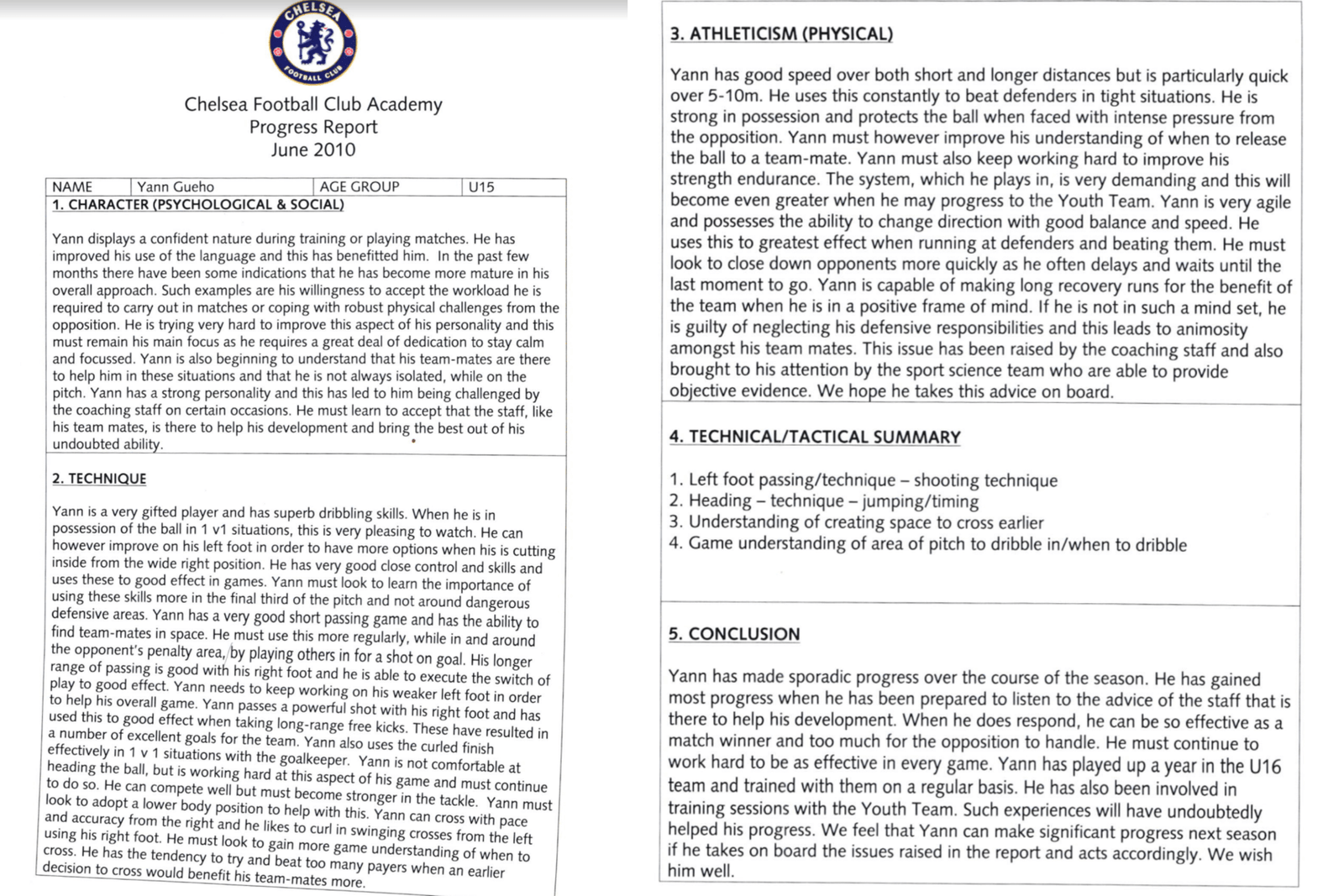
Yann, in short, didnt change one bit at Chelsea.
Some of the things he could do were on another planet to what you normally see from 15 and 16-year-old kids and thats a big compliment considering he was at Chelsea, Adi Viveash, whose name appears on that academy report, tells The Athletic.
Yann was really strong and had immense power and was one of the first to have the socks down, a bit like (Jack) Grealish does now. It was enough to get him to put shin pads on to play the game. He was very quick, but he only wanted to run when he wanted to run. And when I took him off a couple of times I do remember that. That was interesting.
He came off in one game and everything was getting kicked. The assistant said to me, Adi, hes gone crazy. I said, You just need to calm him down. He said, It might need you to do that. He did make you feel a little bit on the back foot, you had to be clear and precise how you dealt with him.
Viveash pauses for a moment. Part of your skill as a coach is to try to read people, he adds. But you never knew with Yann where you were. And I think when I looked into his eyes I certainly felt there was a troubled young person.
Anne-Marie was worried at the outset about Yanns behaviour being a problem at Chelsea. She opened up about that to Guy Hillion, the French scout who accompanied her on her first trip to the club, but received assurances that Chelsea were aware of Yanns character and his history.
Regular sessions with the first-team psychologist were organised by the club, giving Anne-Marie peace of mind. There was also a feeling on her part that a fresh start in England would be a form of therapy for Yann.
For most people at Chelsea, Yann was an enigma. He didnt speak much English and had little interaction with his team-mates as a result. On the pitch, those players were in awe of him. Off the pitch, they never quite knew where they stood.

Alex Davey playing for Chelsea in the FA Youth Cup semi-final against Liverpool at Stamford Bridge in 2013 (Photo: Christopher Lee/Getty Images)
I remember one time we were in the changing room before the match a small changing room and everyone was talking, Alex Davey, who played alongside Yann at Chelsea, says. Yann was sitting in the corner, blowing bubbles from saliva in his mouth, just staring at the wall. Youre a young kid at this time and youre thinking, Whos this?
But then you watched him play and there was a game against Norwich at home, he did these skills and then he did a rainbow flick over a players head, came back inside and just slotted it in. And that was him. As soon as he got on the ball, we were like, Hes going to do something, hes going to score.
Davey chuckles. Just talking about him raises a smile. Hes someone who always comes up in a conversation. Every time someone asks me that question: Who was the best player youve played with?, I pick him. I would love to be able to say, Heres a clip of him, thank you for backing up my point.
John Swift, who spent nearly 10 years at Chelsea before moving onto Reading and now West Brom, admits he has lost hours on the internet trying to find footage of Yann. He can still remember watching Yann for the first time, seeing him glide past three or four players in a pair of bright red boots at Cobham, and thinking to himself, Jesus, whos this guy?
He used to always get the ball from a corner, even though we hadnt practised short corners or had no intention of playing the ball short, Swift adds. He would basically demand the ball and then go one-versus-one against whichever defender came out, and he would do a crazy trick to get past them, or he would flick it over their head and get it the other side. Ive never seen anything like it in my life. Every time it went out for a corner, we were like, OK, everyone just watch now.
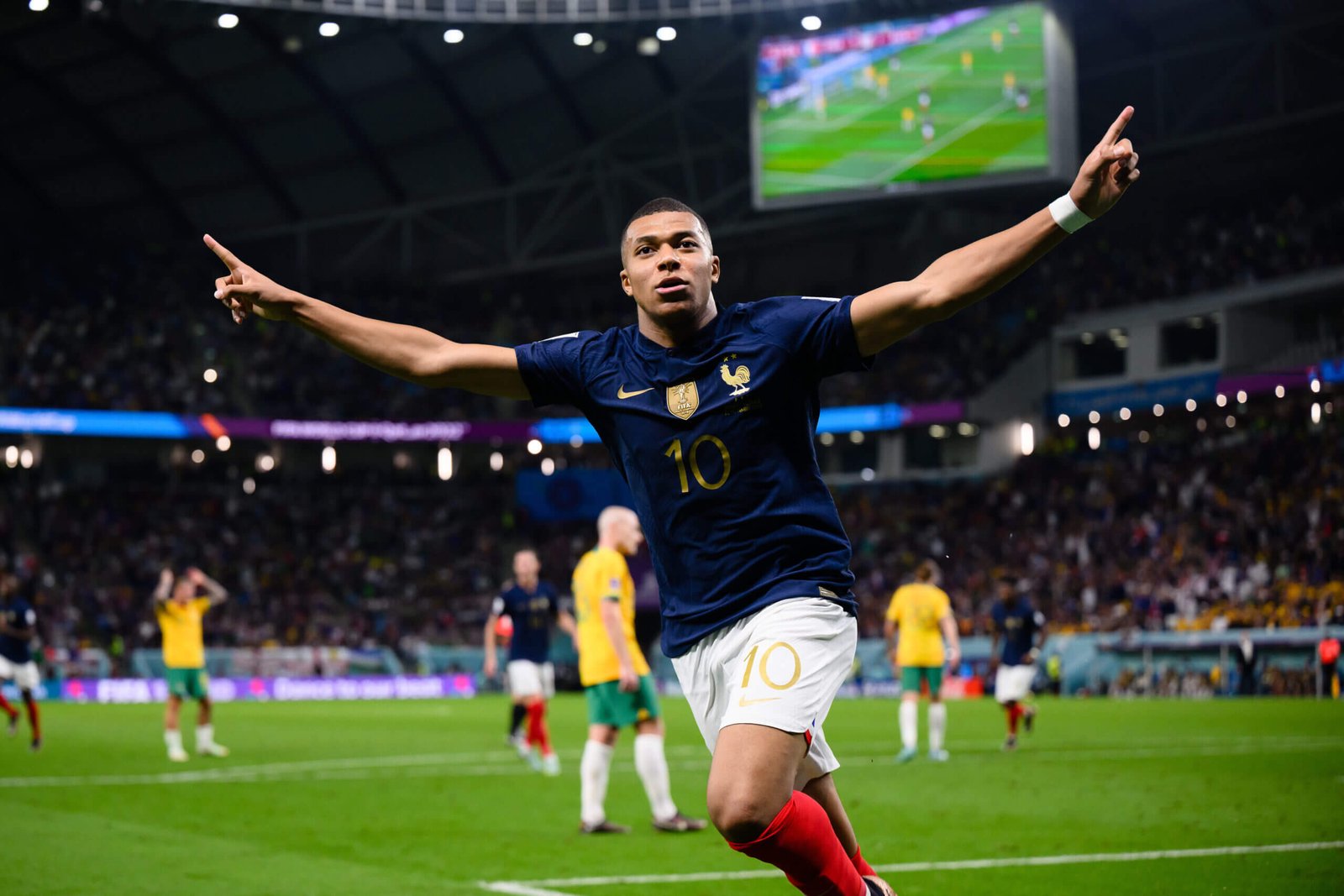
John Swift now plays for West Brom (Photo: Ashley Allen/Getty Images)
Swift laughs. There was a story when Yann went over with the first team and trained, bearing in mind he was only 14 or 15 years old at the time. I dont know whether he got sent back, but I just remember people saying that he basically took the piss out of first-team players, nutmegging them in a mini game and everyone was a bit like, Whats he doing? Hes 15 years old and hes embarrassing first-team players. (Michael) Ballack was there then and Deco. It was a big story going around the training ground at the time.
By all accounts, Ricardo Carvalho was one of Yanns victims that day and, perhaps not surprisingly, a schoolboy putting the ball through the legs of one of Chelseas most experienced central defenders didnt go down particularly well.
Yann was obsessed with nutmegs. Jeremie Boga, who was at Chelsea at the same time as Yann but a couple of years younger, hasnt forgotten the scene in a youth game at Cobham one morning.
Yann saw Bogas brother, Daniel, on the touchline, walked up to him in the middle of the match and promised to do three nutmegs for him. Daniel, who knew Yann well, told him to concentrate on the game. But Yann had other ideas and stayed true to his word.
I think that game was against Arsenal, Jeremie says, laughing. For Yann, it was like playing street football on a main pitch.
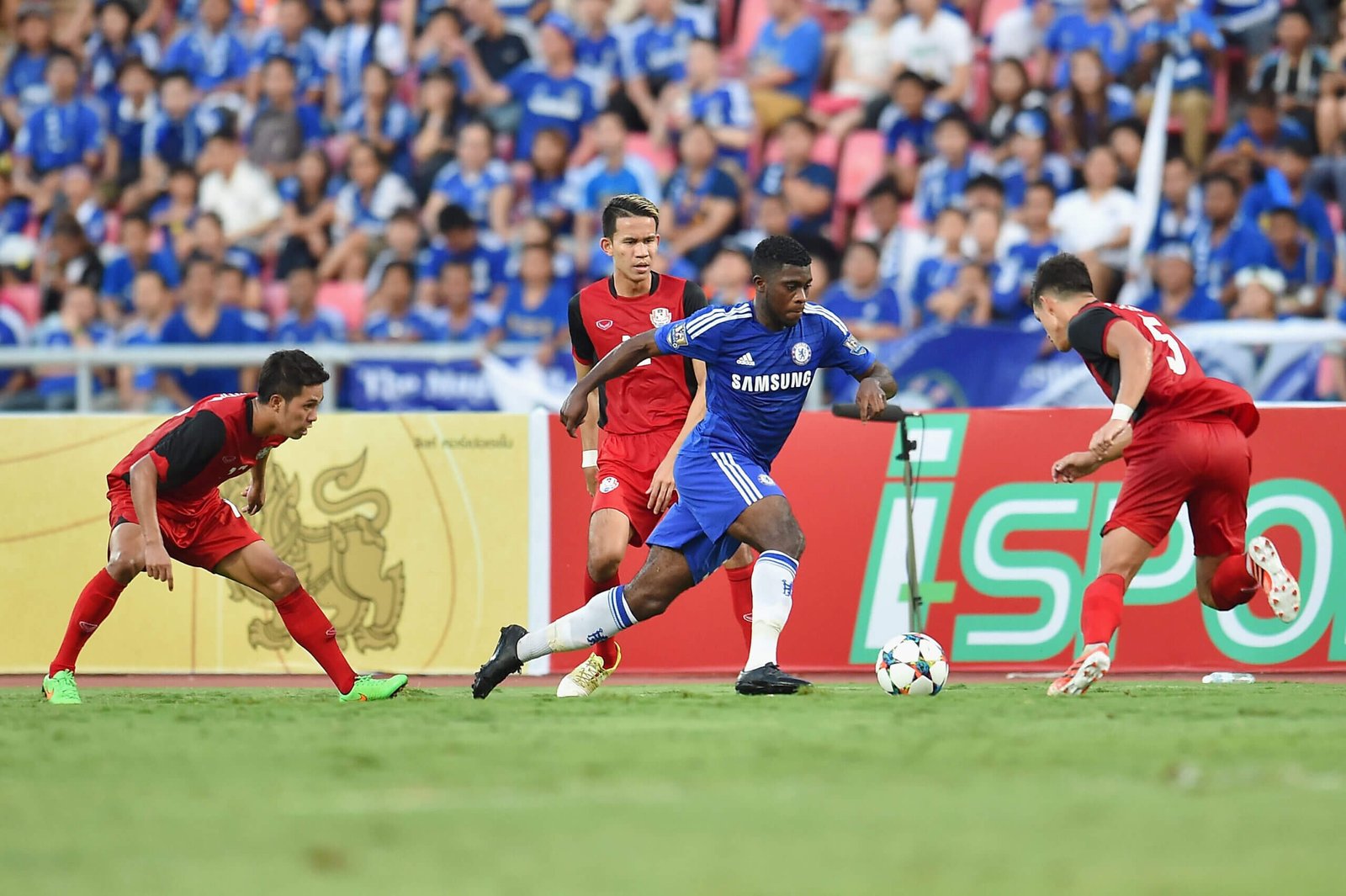
Boga playing in a pre-season friendly for Chelsea in 2015 (Photo: Thananuwat Srirasant/Getty Images)
That style of play was entertaining but also provocative and caused issues at Chelsea on a regular basis, not least because there was always a feeling that Yann enjoyed making a fool out of others, whether that was his team-mates in training or opponents on a matchday.
Jeremie (Boga) would beat people but then go past the next one and the next one, Viveash says. Whereas Yann would wait for them wait for them to lose their head, try to take him out, and then hed do them again.
It was bound to lead to confrontation and, in Viveashs view, that was something that Yann relished too. I always used to try to say to him, When youre on the pitch, Yann, and people cant live with your ability, they try to get you back. These kids at school that goad you, theyre trying to do it for a reaction. Youre doing it on a football pitch to get a reaction. You take the mickey out of them for a reaction. And he would say, No. Its fun. Its beautiful, no? He used to say it with this stare.
The problems at school continued in England and there were arguments and fights on a frequent basis at Chelseas training ground too. A game of table tennis or pool could end with a bat being launched across the room or a cue broken. He had such bad anger issues and everyone knew that. But everyone also knew how good he was, Swift adds.
Adam Nditi, who was also at Chelsea at that time, remembers Yann arguing with coaches about anything and everything, right down to the size of a five-a-side pitch. Yann would sometimes pick up the discs on the training pitch and move them around to suit him. If the coach told him he was taking too many touches, he would just boot the ball and walk in, Nditi says. He just did not care.
Nditi sighs. Yann is the best player Ive ever played with or seen. He had everything. Everything apart from attitude. He had the worst attitude you could think of. The (Mario) Balotellis theyve got nothing on Yann when it comes to attitude.
There were even problems at the local train station, where Yann regularly jumped the ticket barrier and ended up getting involved in a physical confrontation with one of the railway staff one morning. The fact that he was wearing Chelsea training kit at the time didnt make any difference to him.
Thats things he would have thought he could get away with and it brought a bit of fun, a bit of devilment, Viveash says. The players get a ticket pass to get to Cobham. So that, again, is a game. What Yann did off the pitch was his persona on the pitch.
Ultimately, though, Yanns team-mates wanted him lining up alongside them on a matchday because they knew he could be the difference between them winning or losing. Viveash recalls the way that Nathaniel Chalobah, who he says was a model professional at the age of 14, would try to convince him that Yann should play even when the club were punishing him for his poor behaviour.
Nathaniel really respected Yanns ability, Viveash adds. So he really tried to talk to him, to guide him, even though he was a young lad as well. And he certainly stood up for Yann at times with me. Because when youve got someone like that on your team, you dont want him to not be playing on Sunday because hes been in trouble at school. You want him to be playing because he gives you an opportunity to beat the best of the best. And thats what Chelsea were and thats what Yann was.
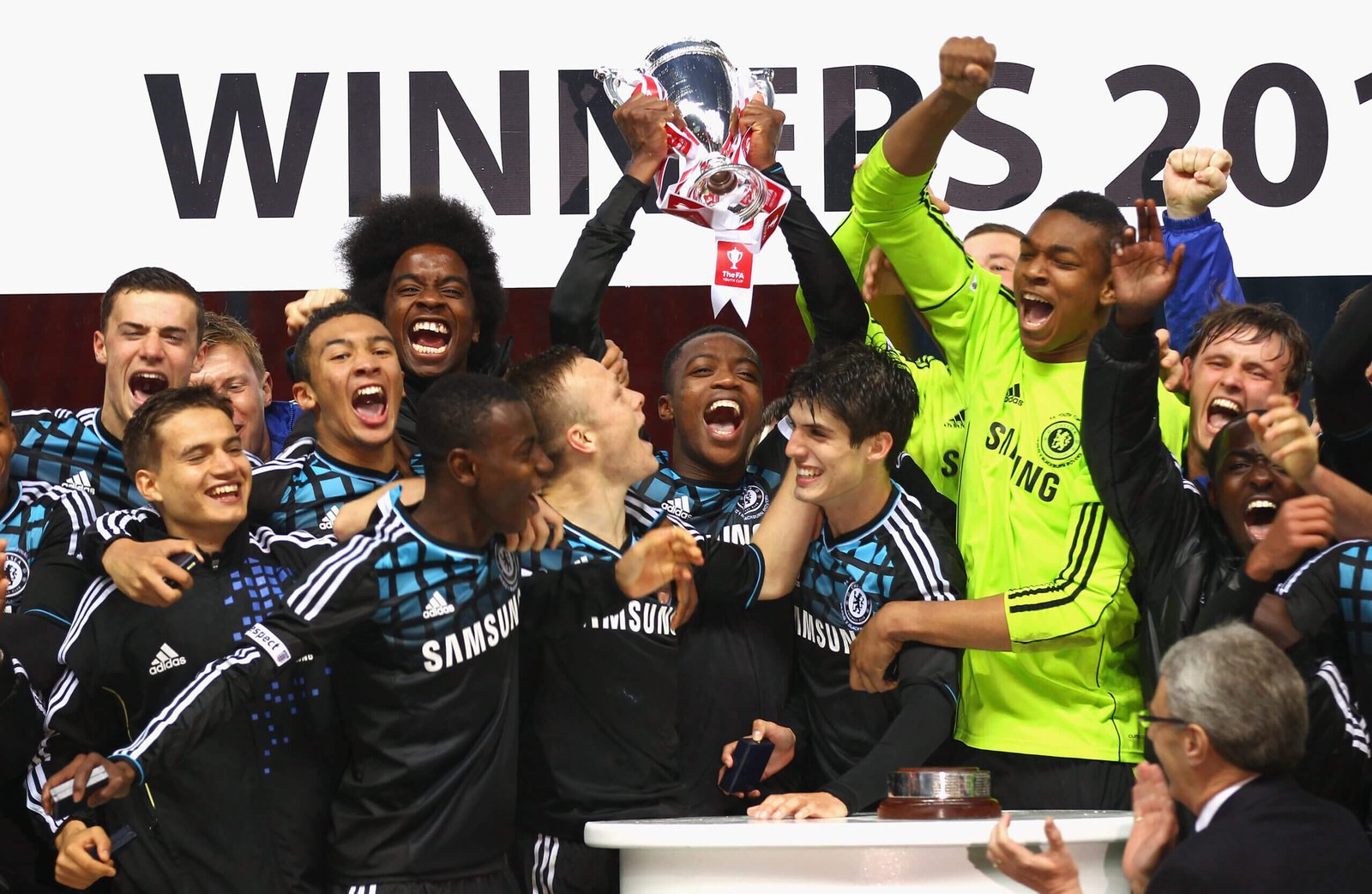
Nathaniel Chalobah lifts the trophy after captaining Chelsea to FA Youth Cup final success in 2012 (Photo: Clive Brunskill/Getty Images)
Anne-Marie was never in any doubt how Yann was perceived at Chelsea. It was there in black and white in the academy reports she received and also conveyed frankly in face-to-face conversations. They said, Your technique is here, Yann, she says, getting up from her chair and pointing high in the air. But your mentality is here, she adds, gesturing in the other direction.
I said to him, Youre good, everyone is telling you that you are very good, you know that you are going to go to the next stage. But dont do stupid things. Dont be the one that we are talking about in a bad way.
Unfortunately, her warning was ignored. During an in-house game at Chelseas training ground in April 2011, Yann was involved in a fight. The identity of the other player is unknown, but there are suggestions that it was a Russian who was on trial.
That was probably the straw that broke the camels back, Viveash adds. We had a lot of trialists at that time. I do remember the incident, the lad went past him and he scissor-kicked him. The lad responded and the next minute (Yanns) on top of him.
Anne-Marie shakes her head. I cant say the name (of the other person involved). But he (Yann) definitely had a fight with a player. All the senior coaching team were at the match. In the first half, Yann was outstanding. In the second half, he showed how stupid he can be, and thats when they took the decision. In the game, he was able to show what hes capable of the best and the worst.
At the same time, Anne-Marie is quick to point out that Yann didnt leave Chelsea because of that fight it was, she says, because of a long list of problems in relation to his conduct.
When a trial with Fulham, which had been set up by Chelsea, came to nothing, it meant that life in England for Anne-Marie and her three youngest children, who had settled at their schools, was over. In that sense, Yanns actions impacted on others this time and not just himself.
It is hard to know how much Yann thought about any of that, including the sacrifice that Anne-Marie and Jean-Pierre had made by splitting up the family and living apart for two years so that he could chase his dream with Chelsea.
He would have loved for his parents to be financially OK. But he didnt realise all weve done for him, Anne-Marie says calmly, without any trace of anger.
As for Chelsea, Anne-Marie only has good things to say about the club. She says that Simon Dickie, who was the under-16s physiotherapist at the time, was like a second father to Yann, and praises the staff for showing an interest in her son that extended well beyond football. They did all that was possible, she says.
Viveash nods. I dont think the academy could have done any more for him. They were very lenient, they tried to help. But in the end it became unsustainable.
Trying to guide Yann anywhere was a difficult path. You had issues at school, where he then wasnt able to come training. You had issues where he was late. You had issues in games. You always tried to paper over it with the ability, because the ability was incredible. But it got to a stage where it outweighed the ability. Sadly, the biggest thing I can say is that when I heard he was in prison, it didnt surprise me. And that really is sad.
It is a difficult question to ask and, from Anne-Maries perspective, impossible to answer.
Why did Yann wake up on his 17th birthday and decide to walk into a shop in his home town and commit a robbery?
Nobody understands that, she says.
There is a pause before Anne-Marie says anything else. She has talked candidly for a long time and answered questions on everything. But prison, understandably, is a really difficult subject.
Eventually, Anne-Marie breaks the silence. Trying something else? she wonders, looking and sounding perplexed.
It was the day of his birthday, he received money from his grandparents. He had no reason to do it, she adds.
Like I said, after Chelsea, it went down and down.
In theory, signing for Nantes in the summer of 2011 should have cushioned the fall after Chelsea. In reality, the three months Yann spent with the Ligue 1 club, where Guy Hillion, the former Chelsea scout, had taken over as sporting director, were a microcosm of everything that had gone before.
Matthieu Bideau, the academy chief scout at Nantes, recalls an internal game between the under-19s and the reserves at the training ground. Yann, aged 16, was playing for the under-19s and, much to the annoyance of the coaching staff, walking on the pitch.
The reserves scored and were winning 1-0, Bideau says. Yann took the ball, dribbled past three or four players, like the reserves were children, and he shot from 35 metres into the top corner. He said, Its OK now? That was Yann. When he wanted to do it, he did it.
I was there and I remember it very well, adds Valentin Rongier, who now plays for Marseille. Yann was exceptional when he wanted to play, but he wasnt always up for it. When he was, he was doing extraordinary stuff with a football. A pure talent.
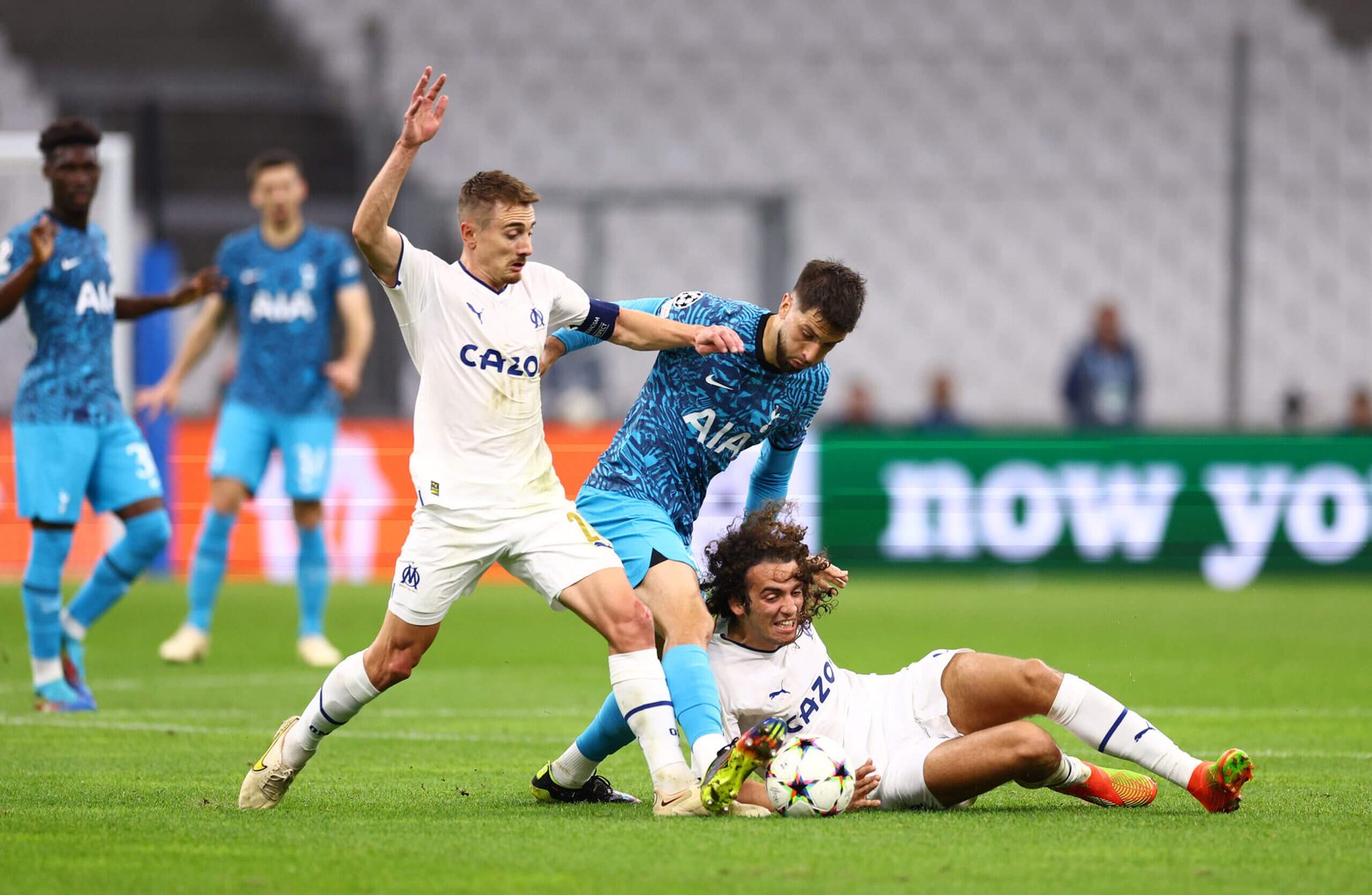
Rongier, left, playing against Tottenham in the Champions League in November (Photo: Clive Rose/Getty Images)
Unfortunately, Yann had more bad days than good days at Nantes. He clashed with a coach who wanted him to be more of a team player, fell out with some of his team-mates and caused issues at school.
We never had a big problem with Yann, Bideau says. But every day a little problem: late to training, no work at school, walking on the pitch, not wanting to work hard. A lot of things like this. If we were the first club that Yann was in, maybe we would continue. But we said, OK, Clairefontaine are not crazy. Lille are not crazy. Chelsea are not crazy.
The disappointment in Bideaus voice is unmistakable as he makes those comments. He describes Yann as a rare footballer and mentions him in the same breath as Ronaldinho but also believes that he was someone who was not ready to live in a structure where there are too many rules.
The regimental world of professional football was always going to be difficult for Yann in that respect, and perhaps he knew that himself. One of the traits that Bideau admired most about Yanns character was the way he held his hand up when he was confronted about his behaviour.
Ninety per cent of young players, when they are in a bad mood, they say its because of the referee, its because of the coach, its because of the pitch never because of them. But Yann always said that the problem was him. When we sacked him at Nantes, at that moment he said to us, Thank you very much. He came to the school, he said to the teachers, Thank you a lot. It was like he said, Thank you for trying to help me.
Not everybody was trying to help Yann though.
Khallil Lambin, who was at Nantes with Yann and grew up around the corner from him in Maisons-Alfort, paints a stark picture when he talks about their respective childhoods away from football.
Yann and me lived in a good neighbourhood, but five minutes walking distance, thats where you have the bad things. Its a choice whether you go there or not, and Yann was always attracted to that, Lambin says.
I would never approach (those people), never say hello, because Ive never been friends with them. But Yann would always go there and give them Chelsea shirts, or Lille shirts, or FC Nantes shirts, taking pictures with them.
Deep down, these people are jealous of you, because they want to be like you. But Yann didnt see that. Yann saw that as proper love my guys from the street. But if they truly love you, they will say, Dont waste your time with us. But they didnt.
When those comments are read out to Anne-Marie, the expression on her face hardens. Thats exactly right, she says.
Maybe the company that Yann was keeping away from football goes some way to explaining why, at the age of 17, he was not at all fazed by prison. He refused to be with the minors, Anne-Marie says, rolling her eyes. He said he wanted to be with adults in prison. So he ended up with serious criminals, guys who were terrorists from ETA (Euskadi Ta Askatasuna, the Basque separatist group).
Prison dismayed Anne-Marie in so many respects. It was where Yann started to take drugs that made it harder to manage him, she says, and an experience that did nothing to discourage him from committing more crime because of the people that he associated with inside.
As parents, they did their best to support him, visiting at every opportunity, taking in clothes and trying to put on a brave face. Inside, however, they were hurting, anxious and, Anne-Marie admits, ashamed. It was very, very hard, she says. We didnt know anyone, friends or family, who had any experience of going to prison. We are not like the others (in prison), we are a normal family.
Loup-Diwan briefly lightens the mood when he tells a story about famous French rappers who were in prison at the same time as Yann and later gave interviews about his brothers football ability. Two or three said, In my prison I had the best player Ive ever seen. Even rappers said that! Loup-Diwan says.
It is a remark that prompts laughter around the dining table. Anne-Marie joins in too but, in reality, she is not amused. She quickly makes it clear that she strongly disagreed with Yann receiving preferential treatment in prison because of his status as a footballer.
Thats not fair, she says, looking annoyed. In prison, you have rules. But if you are good at football, even in prison you have facilities. Normally a prisoner could do sport once a week, but if you are good at sport, you can go when you want.
In Yanns case, he could also decide, without any interference, who made the starting XI. They organised prison games, the prison against external teams, Anne-Marie adds. Yann was in charge of picking the players. He said to the terrorists, Im not dealing with your bombs. So dont interfere with my team.
Knowing what we do about Yann now, that kind of comment is no less surprising than what happened next. Yann scored a hat-trick against a fifth-tier French club and was so impressive that, according to Loup-Diwan, the manager of the opposition asked the prison if they had a solution to get him out, even with an electronic tag, or something like that.
Yanns agent, Housseini Niakate, had his heights set much higher. In March 2012, Niakate persuaded the judicial system to allow Yann to join the Ligue 1 club SC Bastia. Aged 17, Yann stayed with Florian Thauvin, who was playing for Bastias first team and would later go on to win the World Cup with France.
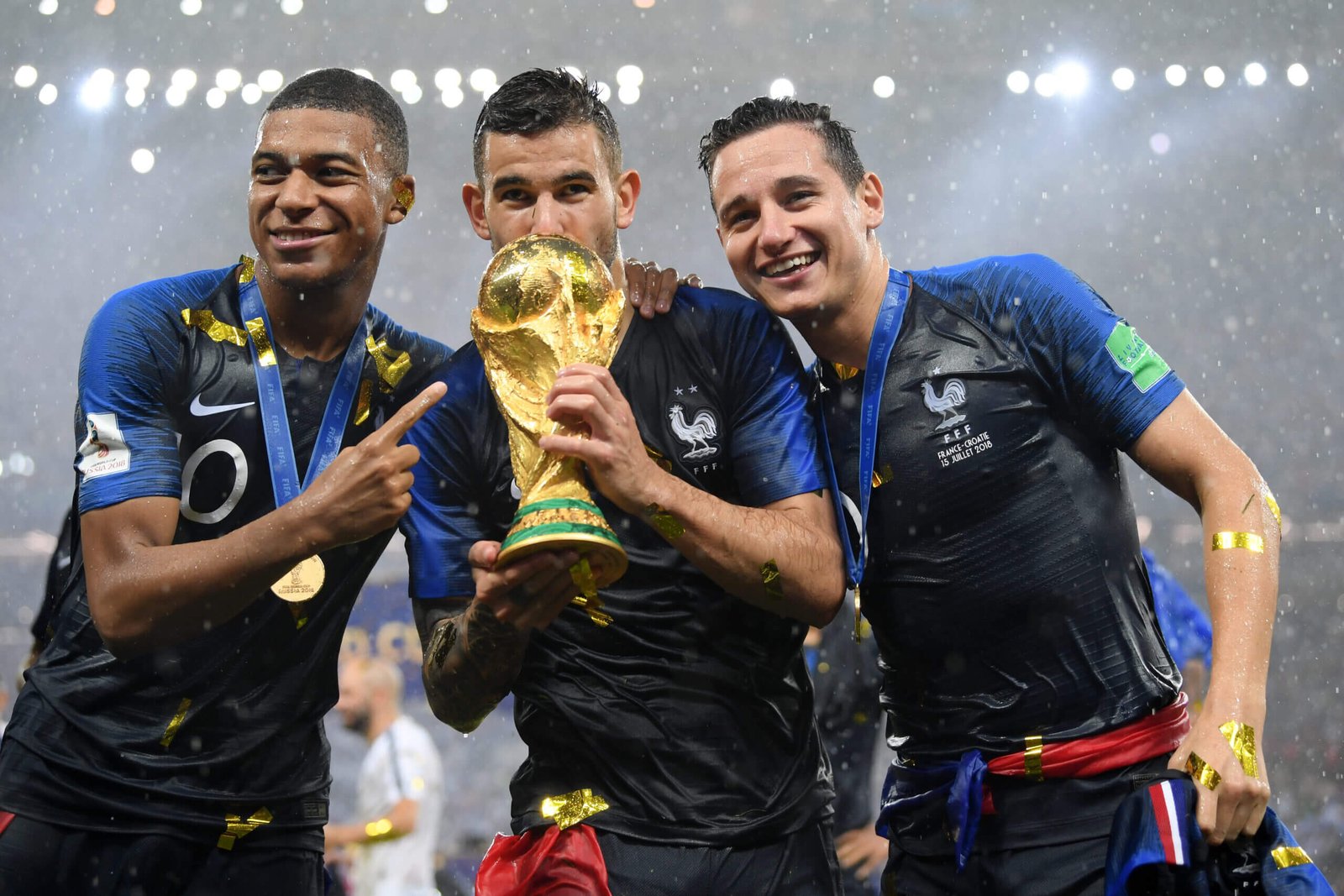
Thauvin, on the right, celebrating Frances World Cup win in 2018 with Mbappe and Theo Hernandez (Photo: Matthias Hangst/Getty Images)
Sadly, Yanns future was nothing like as bright. Bastia didnt work out Yann was playing almost as much tennis as football, eating badly, struggling with injury, neglecting his rehabilitation and, according to Anne-Marie, not serious about reviving his career. But much worse was to follow.
In December 2012, Yann and a friend from Grigny, in the south of Paris, robbed a couple in their home. The following March, Yann physically assaulted a man and attacked the police officers who came to arrest him. He spent the next 21 months in prison.
What I can say is that in his last moments on the pitch playing football, he hadnt lost anything. It was a pleasure to see him touch the ball. At the moment he accelerates, you can see (Lionel) Messi, you can see Neymar, you can see Mbappe. Ooof.
Alexandre Monnier is thinking back to Yanns final attempt to forge a career in professional football. Yann had been released from prison towards the end of 2014 and was back at Paris FC, training with the reserves, not in perfect physical condition but still capable of doing things with a football that left people speechless.
If we speak about talent, he is the most talented player Ive ever seen Im 100 per cent sure of that, Monnier, Paris FCs former reserve coach, adds. I saw a lot of the players playing for France now. I saw (Karim) Benzema, I saw (Christopher) Nkunku, I saw Mbappe. Ive never seen a player as good as Yann.
But what is crazy is he could play five minutes perfectly, like a 20-year-old Ligue 1 player. And then the next five minutes you had to use glasses to see him on the pitch because he was walking, not interested in the match and looking at the sky.

Mbappe is on a career trajectory to rival the greatest players of all time (Photo: Markus Gilliar GES Sportfoto/Getty Images)
Yann ended up drifting away and in more ways than one. At one stage, he moved to Coutances, in Normandy, to live with Anne-Maries brother after he was ordered by the courts to leave the Ile-de-France region, to try to break his cycle of offending behaviour.
Unfortunately, Yann was back in prison by the end of 2018, following another incident of violence involving local police officers. By that stage, though, there had been a significant development in relation to his mental health.
At the end of 2016, when he was 22 years old, Yann was diagnosed with bipolar disorder a mental health condition that is characterised by extreme mood swings and changes in energy levels. Yann spent three months in a psychiatric hospital, where he was a difficult patient. It was hard work for the staff because he was still a fit man and he escaped quite a lot, Anne-Marie says.
Yann found it hard to accept the diagnosis at first. As for Anne-Marie, she had her own suspicions a few years before, when she looked more deeply into the medication that the psychologist had prescribed back in 2009 (without ever disclosing exactly what the medication was for), and which Yann had steadfastly refused to take. It was, Anne-Marie says, a drug for bipolarity among other things.
If this diagnosis is right, his time in prison totally destroyed him, Anne-Marie adds, because thats when he started smoking drugs. That was explosive.
Bipolar, you should not have too many bad or good emotions, you have to have good sleep and regular sleep, and no drugs and no alcohol. These three elements are vital to be able to live with this condition. Knowing that earlier, we would have been able to work around this.
Quite what that would have meant for Yanns football career is genuinely hard to know. All we can say for sure is that there would have been a much greater level of understanding around his behaviour on and off the pitch and, perhaps, more professional help made available at times.
Interestingly, some of Yanns former team-mates didnt just see him as a prodigiously talented footballer who couldnt control his temper. Thats not to say they suspected any sort of psychological condition; it was more that they wondered whether Yann needed a coach to connect with him on a deeper emotional level.
Yann was special, says Chris Lybohy, who was with Yann at Clairefontaine. But he needed love, he needed affection. He was a player like that. A lot of coaches dont know this they dont know it. The relationship between a coach and a player is like a father and son, and Yann needed this.
Anne-Marie, in fairness, doesnt feel let down by Yanns former coaches or clubs when it comes to their treatment of her son. She recognises that he was foolish and challenging at times and, ultimately, the architect of his own downfall.
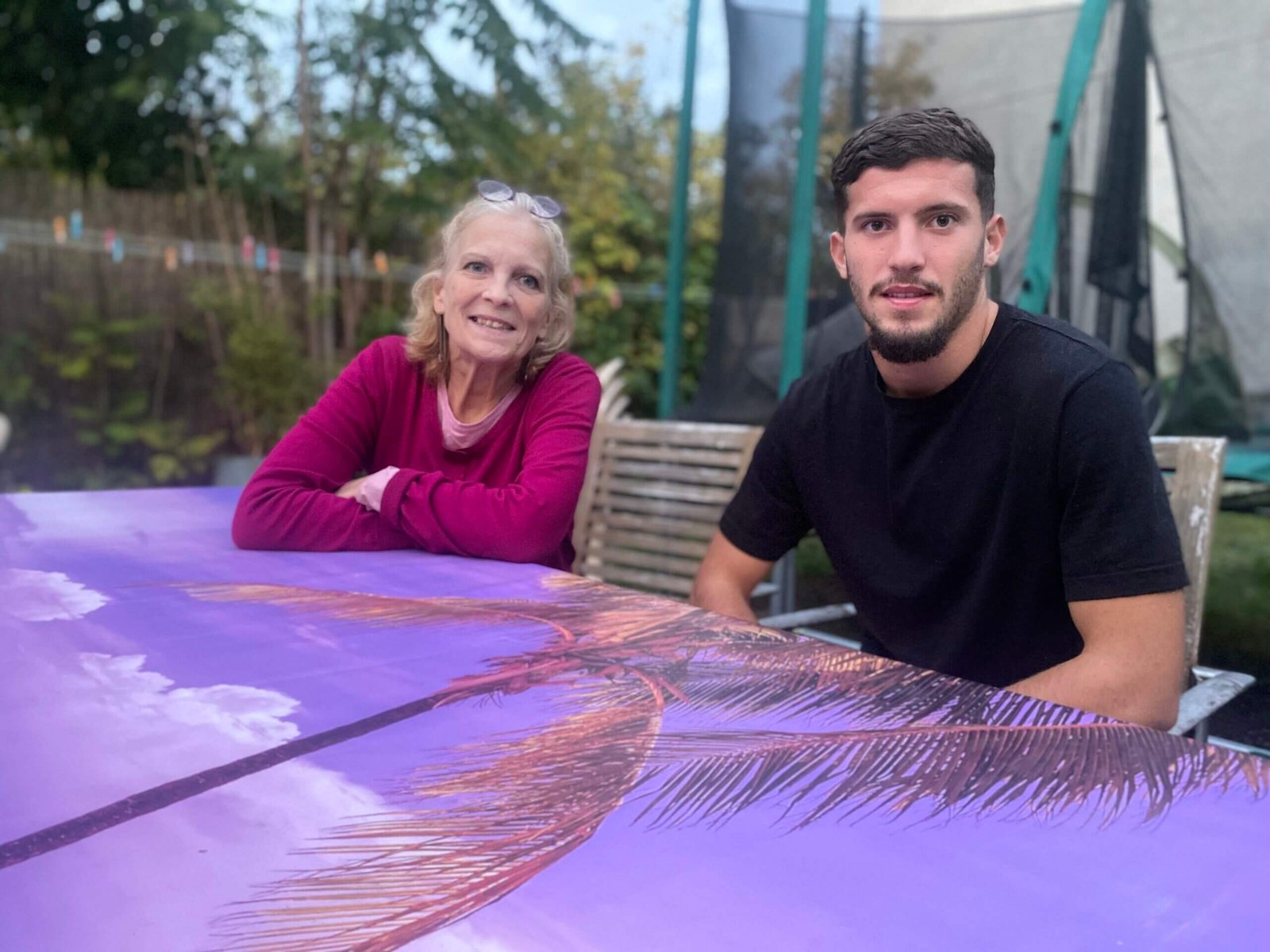
Yanns mother Anne-Marie and younger brother Loup-Diwan
The fallout from all of that continues to be difficult to manage. Anne-Marie talks about Yann being fragile, not coping and suffering from a big, big, big depression with really weird thoughts the latter is not something that she wishes to elaborate on.
The family are doing everything, she says, to try to help. Their love and support for Yann is unconditional but, at the same time, there is no escaping the anguish and torment they have all experienced along the way. That shines through when Anne-Marie explains that Yann lives a mile away from his parents.
He left the family house three to four years ago, she says. I didnt want this to be his official address any more because in the past we had two occasions when the police arrived with search warrants. The problem is not Yann living with us. I just dont want to be scared if I hear the police siren. It was too much for me. Emotionally, its really hard to cope with and accept.
There is sadness in Anne-Maries eyes and her emotions are stirred again when she listens to some comments from Yanns first coach, who said that his throat knots whenever he speaks about the 10-year-old boy who could do things with a football that he had never seen before.
I meet Yann sometimes and we chat, Jean-Francois Godin says. I feel that the spring is broken. However, I would really like it if he played again, even at a low level, only to watch him. And I would love him to say to me, Jeff (his nickname), coach me please, I want to start again.
Could Yann play football again?
I dont know, Anne-Marie says. I dont think so.
The closest Yann gets to a football these days is when he goes to watch Loup-Diwan playing for Paris FC. It was difficult at first to go to the stadium but he never misses a home game now and enjoys talking to his brother afterwards about his performance. Yann is really objective in his analysis, Anne-Marie adds. And Loup-Diwan always listens to what Yann says.
In many ways, going to Paris FC is a lot easier than turning on the television and watching a game at the highest level something that Yann and his parents found impossible for a while.
Because the frustration for us is, when we see some players on TV, we know them, they played with Yann, and we know they were not as good as Yann, Anne-Marie says. For a long period that was really painful. But now its OK. We can watch the French team and not have any regret.
Indeed, the days of spending time and emotional energy thinking about Yann playing football, going through his repertoire of tricks and flicks, and thrilling thousands of people, are largely gone. The only dream that Anne-Marie is pursuing now is happiness. We are a big family and a united family, she says, proudly. Were helping Yann and all helping each other.
When contacted about this feature, a Chelsea spokesperson said: We dont comment on academy matters relating to young players.
(Photos: Yann Gueho/Design: Sam Richardson)
If you would like to talk to someone having read this article, please try Samaritans in the UK or US
